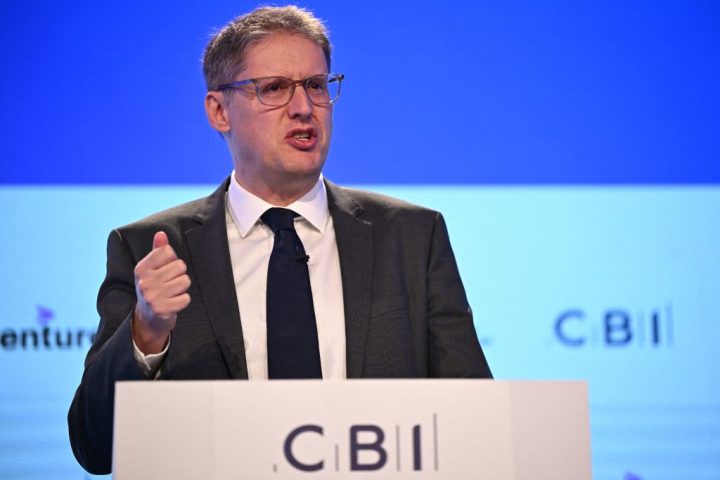Does the CBI want higher taxes or lower taxes? This morning its director general, Tony Danker, complained that the rise in corporation tax from 19 per cent to 25 per cent is in danger of killing off economic growth. He also demanded at the very minimum that a ‘super-deduction’ – where businesses can cut their tax bill by 25 pence for every pound invested – be maintained.
‘We know the economy can – and must – break out of its low growth trap, but we need action of business investment to achieve it,’ he said. ‘Firms are seeing the end to super-deduction with nothing to replace it but a big rise in corporation tax. This will have a huge impact on investment and leave the UK falling behind its global competitors.’
The CBI cheered tax cuts and then, when markets reacted badly, it rolled back its support
Danker is right is his assessment: but is the CBI willing to defend it when the political storms come? Initially, the CBI welcomed Kwasi Kwarteng’s mini-Budget last September. Indeed, Liz Truss referenced the CBI’s support for her plans in her weekend essay for the Sunday Telegraph.
But when international markets started responding to it – albeit following trends of higher interest rates and high borrowing costs happening worldwide – some of the CBI’s spokespeople got rattled. A week after the mini-budget, CBI chief economist Rain Newton-Smith berated the government for not having a ‘clear fiscal plan’, for not saying how it would balance the books or how it would achieve that without slashing state spending.
Kwarteng lasted a fortnight longer and Truss three weeks. On her resignation, Danker said ‘the politics of recent weeks have undermined the confidence of people, businesses, markets and global investors in Britain. That must now come to an end if we are to avoid yet more harm to households and firms.’
Is it fair, then, to be surprised when the new chancellor Jeremy Hunt produced an autumn statement which swung in the opposite direction to Kwarteng’s mini-Budget, making a priority of balancing the books? It is possible to argue that there was a route to be forged some way between that of Kwarteng and Hunt: that corporation tax should have been held down but personal taxes tightened at the upper end of the income scale – or maybe pension allowances cut. That might have helped fill the fiscal hole, with minimum damage to business investment.
But the CBI didn’t exactly elucidate that. It cheered tax cuts and then, when markets reacted badly, it rolled back its support, contributing to Truss’s swift demise.
Over the past week Truss has done little to recover her shattered reputation by appearing to blame the collapse of her premiership on everyone except herself. But she does have some reason to feel aggrieved: friends in politics and industry who had cheered her tax-cutting plans quickly deserted her when they could see she was in trouble. Corporation tax rises are a consequence of that.







Comments